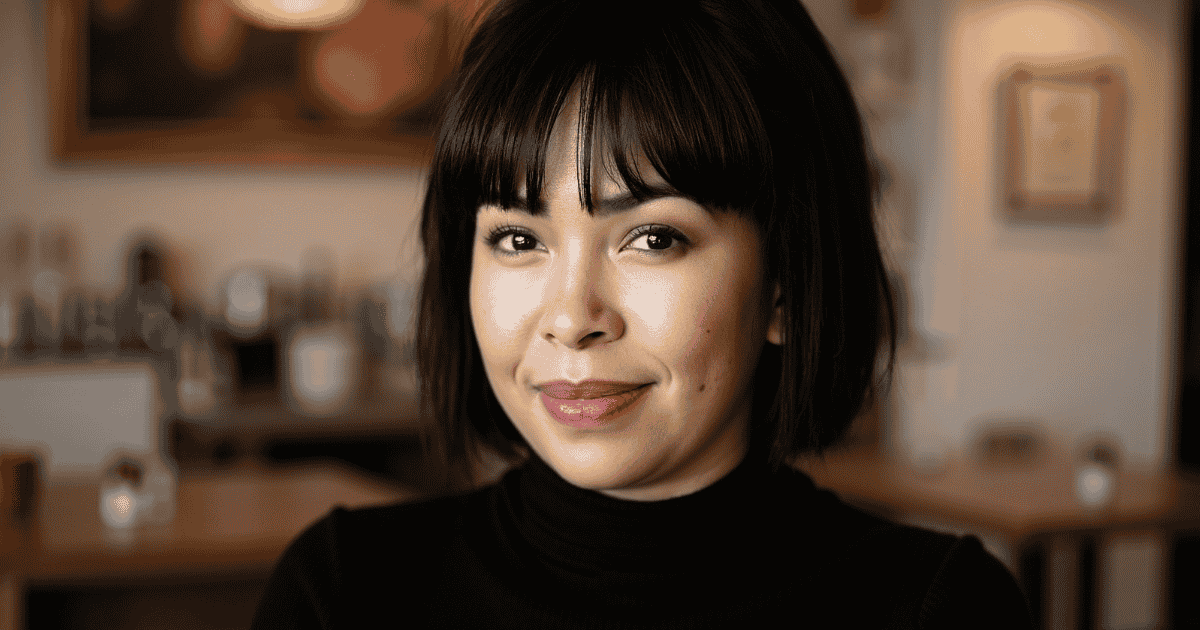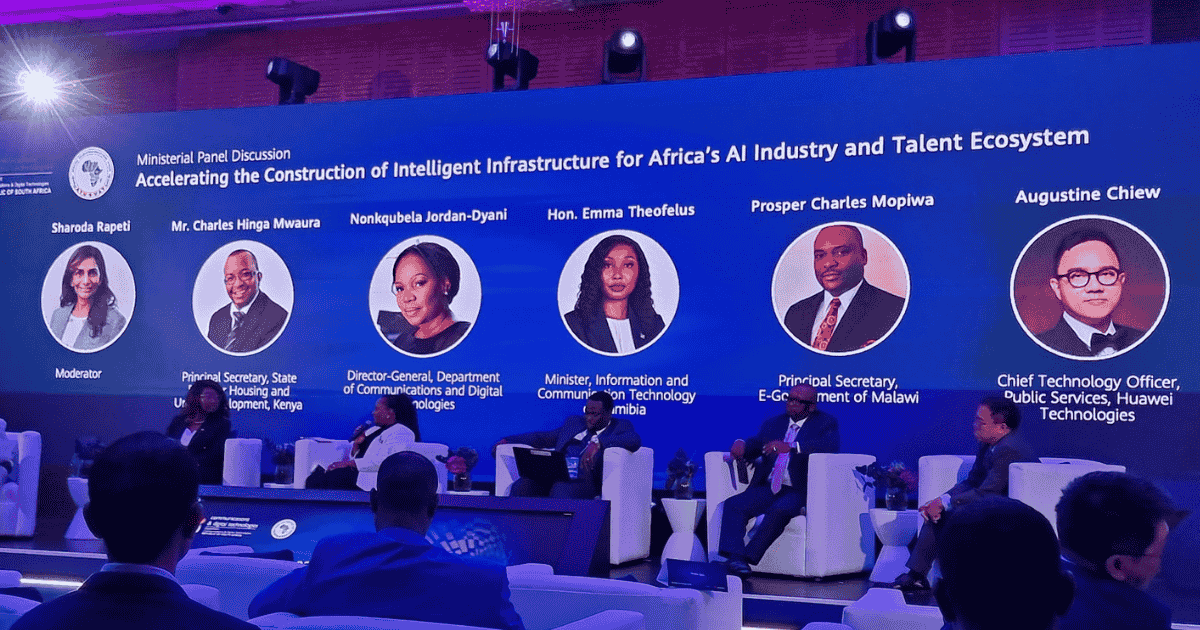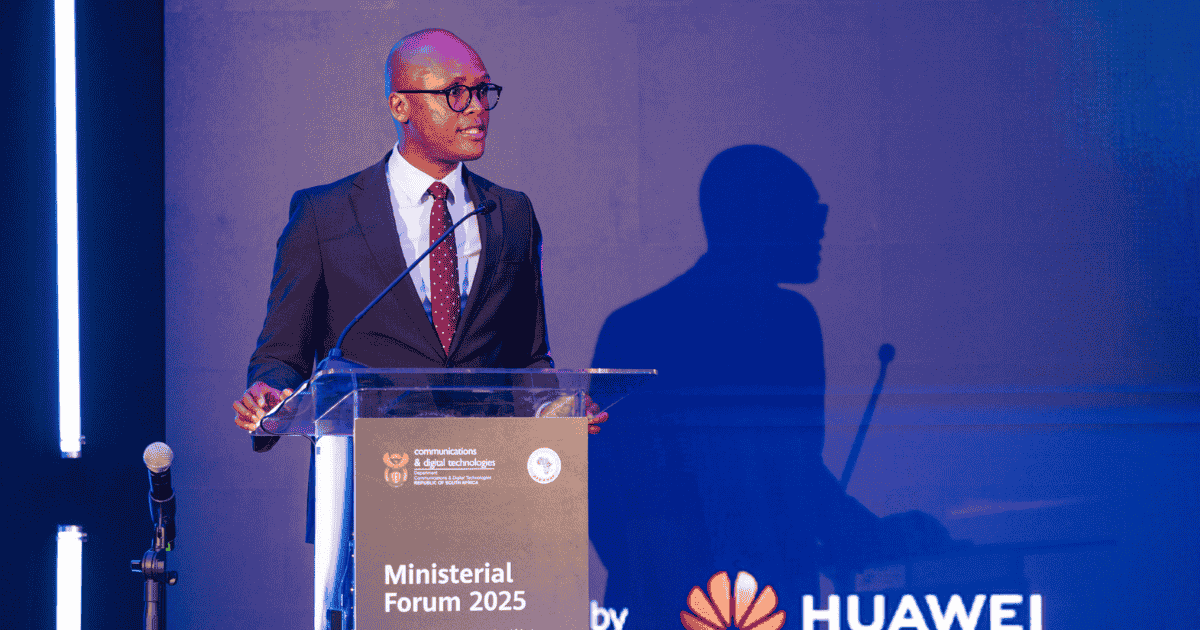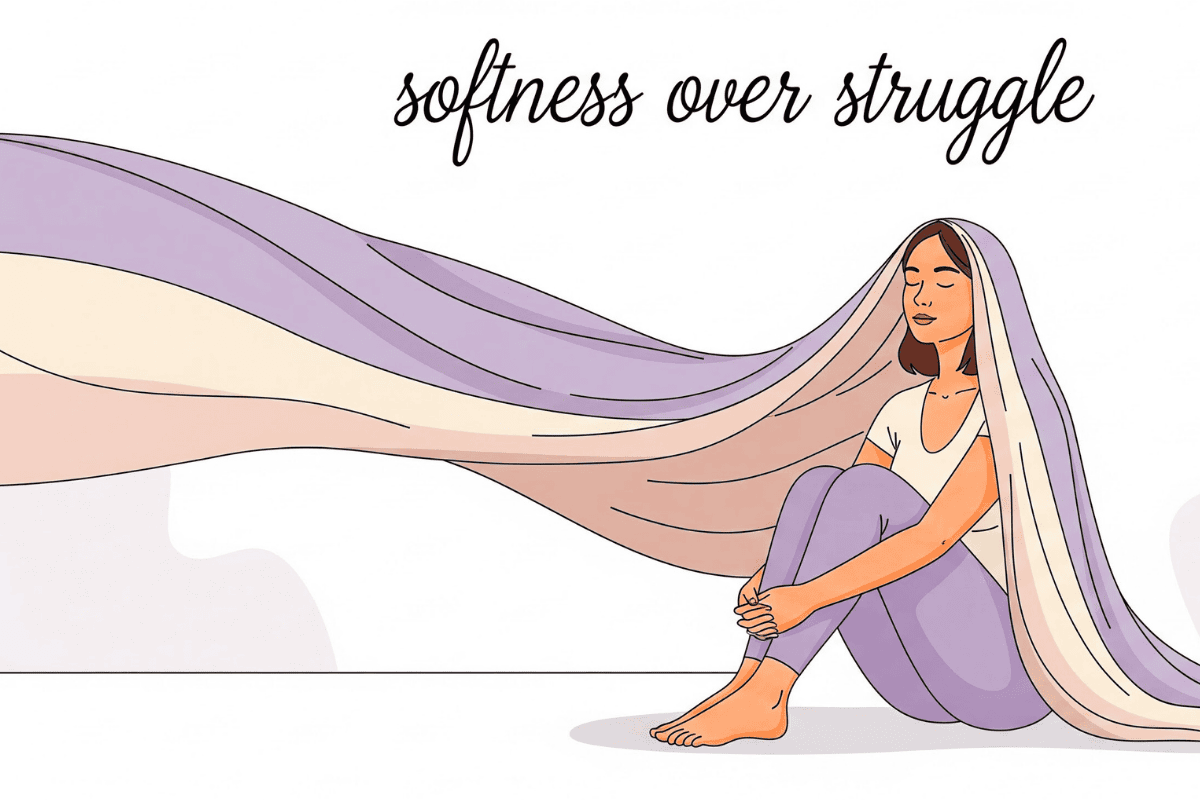Universal access benefits everyone, from seniors and parents with prams, to people with visible and invisible disabilities. It’s a principle that drives Tarryn Tomlinson, founder of LiveAble Access Consultants and Able2Travel.
She is a consultant, an entrepreneur, a speaker, and someone who knows better than most how design can include or exclude people.
I first met Tarryn at the Uber Reimagining Mobility summit, where she spoke about assistive tech and inclusive mobility.
Her perspective stuck with me, and I was curious to hear more. In our interview, we spoke about her story, her work, about access, travel, technology, and about the AI assistant she’s building to change how hospitality spaces think about accessibility.
Much to my delight, the conversation also stretched into themes of manifesting, resilience, and the ways she’s built a life despite heavy odds.
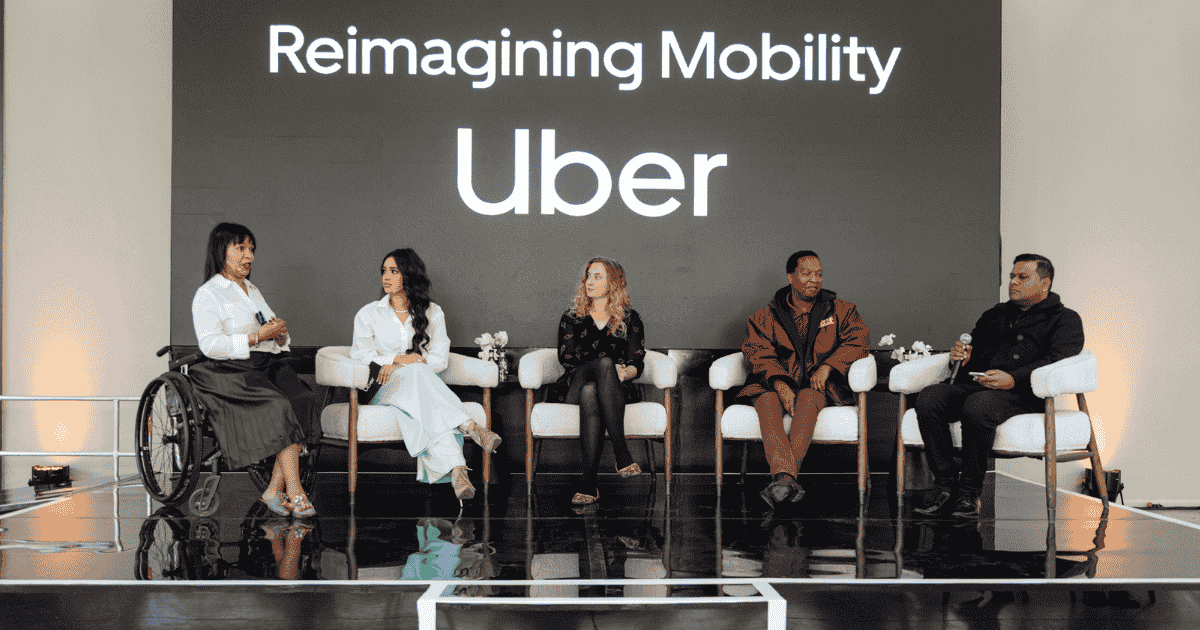
Seeing the gaps up close
Tarryn first noticed the cracks in accessibility back in high school. She developed rheumatoid arthritis at the age of 18. Within a year and a half, she was in a wheelchair and her world looked very different.
Later, as she traveled and lived in hotels, she started spotting design flaws everywhere. Bathrooms with mirrors too high for wheelchair users. Beds too tall to transfer into. Rooms marketed as accessible, but practically unusable.
“The problem,” she told me, “is that the people who are supposed to benefit from these designs aren’t in the room when decisions are made.”
I wanted to hear about her travel experiences and run-ins with fake accessibility claims; the things a lot of travellers might struggle with.
She realised how deep the accessibility issues ran when she started to socialise. “I’m very sociable and started to socialise with friends in hotels because most hotels have accessibility, right? They cater for tourists so there are usually ramps, valet parking, someone to help you in and out of the taxi when you get there.”
“But then when I was there, I noticed there were some very basic design features that people were messing up all the time with accessibility in bathrooms and in bedrooms.”
One example was mirrors in bathrooms placed at the height of someone standing. Not even a long mirror, but a small circular or square mirror high up on the wall.
“So you are a person with a disability and the room is designed so you can’t actually see yourself in the mirror. With things like hooks as well. And they have these lovely high beds, but if you’re in a wheelchair, you can’t transfer from your wheelchair onto a high bed. Now you’re going to get up and stand all of a sudden?” she laughed.
From Italy to insight
Her story took an unexpected turn when she lived in Italy for two years.
While there, she stayed on a famous lyricist’s estate, undergoing medical trials and experiencing the luxury world of hospitality from the inside. That perspective gave her a sharper eye.
She saw not just what worked, but how easily accessibility gets treated as an afterthought.
Hotel owners began asking her for advice, and that was the start of her consulting career. Back in South Africa, she built LiveAble, with Able2Travel as the travel arm of her business.
What started as observations grew into audits, reports, and finally a consulting company focused on making hospitality spaces truly accessible.
Building an AI assistant
The next leap was technology.
Tarryn created AVA, an AI-powered universal access assistant that runs on WhatsApp. It’s like having a normal, text-based conversation with an accessibility consultant.
Architects often rely on outdated regulations, she explained, and professional access auditors are few and far between. AVA was designed to fix that, and it’s super easy to use.
Hospitality owners chat with AVA, upload measurements and photos, and within an hour they get a full accessibility audit with recommendations. What usually takes four hours of manual work is condensed into one.
“She [AVA] will lead you through the various parts of the building she needs to audit. Now, generally, if I was doing this manually as an auditor, I would be going around the building with my checklist and my clipboard and doing the same thing, taking measurements. Then I’d write a report for the client, and the process would take hours.”
But with AVA, the process is mitigated. Tarryn explained: “We’ve created her so that she’s writing the report in the background as you are filling in the information. By the time you’re done with your audit, she will deliver the report to you in less than an hour.”
In the final report, AVA will include building recommendations, an overall score of existing features, and a complete breakdown of everything else that is needed. This is especially useful for hospitality establishments outside city CBDs, since they don’t always have access to auditors.
SAB award
Able2Travel won recognition from the SAB Foundation in 2023, taking home a Disability Empowerment Award at the Social Innovation and Disability Empowerment Awards.
The prize was meant to fund a travel app, but the team quickly realised that before helping travellers, they had to fix the root problem: businesses didn’t know what proper accessibility looked like.
During the process of creating the app, Tarryn suggested to the developers that the consultancy element should be an plug-in. But they soon realised that instead of just creating a plug-in, it could actually be a consultancy AI on its own.
That’s how AVA was born.
The AI assistant became the first priority, giving hotels and hospitality owners the tools to audit and improve their spaces. With AVA now nearing its launch, Tarryn is ready for the Able2Travel app to be developed.
As AVA grows, there will be more information to feed into and expand the Able2Travel app. “We’ll look for more funding for that but first I want to get AVA into the world.”
“I’m glad that we took our time. We’ve worked on all these glitches that you wouldn’t want your client to experience. I’m happy because we’ve refined it, and I love that this is actually so much bigger than I imagined. It’s meant to give access specifically for people with disabilities, but universal access benefits everyone.”
Recognition doesn’t come easy
One would think building an AI tool like this would earn instant recognition, right? Not quite.
I asked Tarryn about something I’ve felt myself. As somebody who’s working on my own app for my media company, people look at me strange when I say I’m building an AI app. I wanted to know if she received similar reactions in the process of building AVA.
She answered immediately: “Absolutely, I’ll share a good example of this.”
Tarryn and her team had done a soft launch (of AVA) with South African Tourism last year at Africa’s Travel Indaba. They presented on stage during the AI segment, and the speakers before them were AI experts.
Even though none of those speakers had created an AI, they were included experts on the panel and the room was packed. Then, during Tarryn’s segment, the room emptied out.
That wasn’t even the worst of it.
When we don’t look like ‘the experts’
Tarryn explained: “The next day, I opened up the newspaper they print on a daily basis for the show, and there is this big heading and a big article all about this amazing AI in hospitality. And they had a picture of the panel from the first discussion….”
“Because a person in a wheelchair, a woman of colour in a wheelchair, cannot create an AI, right? I thought, ‘you know, one works so hard, and then even when you create something amazing, people won’t recognise you’.”
It took pushing back to get the record corrected, though by then the spotlight had moved on. For her, it was just another reminder of how women’s work often gets erased, especially in tech.
Manifesting a different future
Tarryn also spoke openly about how manifesting shaped her life. It stayed with me because this wasn’t the first time a conversation had veered in that direction.
When I interviewed Julie Caitlin Brown at Comic Con Africa, she too brought up manifesting as a guiding force. Different stories, different lives, but both women connected their resilience to the same practice.
During Tarryn’s hardest years, she leaned into the practice of visualising what she wanted, starting with her dream to live in Italy. At this point, we realised we shared a love for the film Under the Tuscan Sun.
Now, the law of attraction says you have to be specific about what you want, so her goals were clear:
- Move to Italy.
- Live there for longer than a year, to get to know the people and the culture.
- Live in absolute luxury.
She explained the luxury goal by saying she was learning that you can create anything, so why limit yourself? Why choose less when you can have everything?
But her reality was far removed from that. “I was living in a separate entrance with my mom. I was in an excruciating pain day and night. I was in a wheelchair, living in Grassy Park. I had no access to transport, no job, no trust fund, nothing.”
So where to from there? She started visualising and affirming every day. She’d watch The Secret every day to get into the feeling state. At first, nothing seemed to happen.
If you’re curious about manifesting, I highly recommend the episode #1 Neurosurgeon: How to Manifest Anything You Want & Unlock the Unlimited Power of your Mind. She interviewed the late neuroscientist Dr. Jim Doty on how the brain actually wires itself to support the things you focus on.
She was ready to give up until her mother suggested a budget holiday. That trip set off the chain of events that led to her meeting new connections, including Nobel Prize-winning HIV researcher Professor Luc Montagnier. And within a year, she was living on a luxury estate in Italy.
She’s applied the same mindset to her business, her tech projects, and her personal life. Even setbacks become fuel. I mentioned tongue-in-cheek that pettiness and spite fuels me.
“Sometimes,” she laughed, “you just have to manifest your haters. Use that spite. It works.”
What’s next
For now, Tarryn is refining AVA and pushing it into more markets. South Africa has been slow to adopt, so she’s looking abroad, where accessibility is taken more seriously.
The Able2Travel app is still on the horizon. It will be designed to help travellers find spaces that are genuinely accessible, with verified information before they book. The groundwork is already in place, and every audit AVA completes brings that vision closer.
And there’s more. Tarryn hinted at another project already in the pipeline and gave me a small sneak peek. It’s still embargoed, but just know it’s going to be big!
Beyond the app and the AI consultant, Tarryn is still manifesting big dreams. One of them is meeting Oprah Winfrey one day. And it’s something that could already be in motion after she met American actress Edwina Findley Dickerson the same week we conducted our interview.
Dickerson is known for roles in The Wire, Veep, Fear The Walking Dead, Chicago Med, Get Hard, The Residence, and If Loving You Is Wrong (an Oprah Winfrey Netflix drama series).
She described the encounter as part of her manifestation practice, and meeting Dickerson felt like a step toward that vision.
For Tarryn, it’s proof that even the wildest goals are possible. The work continues, but so does the belief that access, inclusion, and visibility can be built.
One project and one dream at a time.

